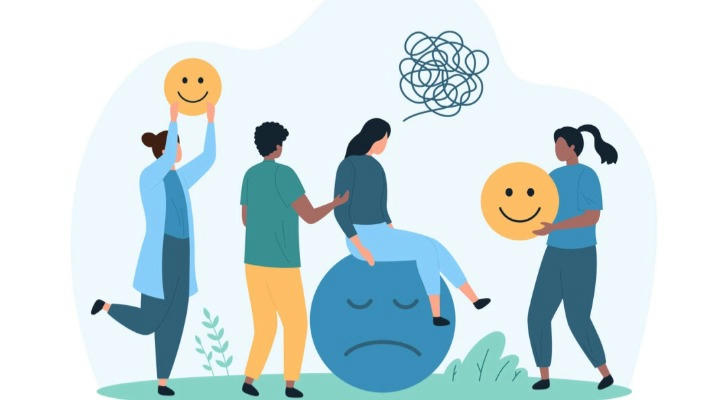Women’s Health: 7 Things You Shouldn’t Ignore
Some health issues don’t shout — they whisper. Especially when it comes to women’s health, the signs are often subtle, delayed, or brushed aside. But ignoring small symptoms can lead to big problems down the line.
According to a 2023 report from the Office on Women’s Health, over 65% of women delay medical attention due to time pressure, uncertainty, or discomfort discussing symptoms. It’s time to change that.
Here are seven issues that deserve more attention — not later, but now.

1. 🩸 Irregular Periods
Not every cycle is the same, but frequent irregularities — missed periods, extremely heavy bleeding, or painful cramping — might indicate deeper concerns.
These may point to:
Polycystic Ovary Syndrome (PCOS)
Endometriosis
Thyroid dysfunction
Early perimenopause
PCOS affects roughly 1 in 10 women of reproductive age, often going undetected. These cycle changes aren't just inconvenient — they’re signals that hormonal systems may be out of balance.
⏳ If periods shift suddenly for more than a couple of months, it’s worth getting checked.

2. 😴 Constant Fatigue
Everyone feels tired sometimes, but there’s a big difference between “had a long day” and “barely getting through the week.” Chronic fatigue could mean:
Iron deficiency (especially after heavy menstruation)
Sleep apnea
Anxiety or depression
Autoimmune conditions
Studies show that women are twice as likely as men to experience fatigue from stress-related and medical conditions. When rest doesn’t fix the tiredness, it’s time to look deeper.
3. 💓 Unusual Chest Discomfort
Heart disease remains the leading cause of death for women in the U.S., yet symptoms are often mistaken for indigestion or anxiety.
Common signs in women include:
Jaw pain
Nausea
Shortness of breath
Upper back tightness
Lightheadedness
According to the American Heart Association, less than 40% of women recognize these as warning signs of a heart problem. That’s a dangerous gap in awareness.
🚨 Chest discomfort — even mild — is never something to shrug off.

4. 🧠 Brain Fog and Mood Changes
Struggling to focus? Forgetting names? Feeling unusually anxious or moody? These can all be signs of something more than a bad day.
Potential causes include:
Perimenopause or hormone shifts
Vitamin B12 or D deficiency
Chronic stress or burnout
Early signs of mental health concerns
A 2022 Harvard report noted that over 60% of women over 45 experienced memory issues they believed were tied to aging — but many were actually linked to hormonal or nutritional changes.
🌫️ When thinking feels clouded, don’t dismiss it as “just busy.”
5. 🔁 Unexplained Weight Fluctuations
Sudden changes in weight — gain or loss — without diet or activity changes could suggest:
Thyroid dysfunction
Insulin resistance
Digestive problems
Emotional health concerns
Medical research shows thyroid disease affects up to 1 in 8 women, but many are unaware until more serious symptoms develop.
📉📈 The scale might be saying something your body hasn’t put into words yet.
6. 🧻 Digestive Issues
Bloating, cramping, or constipation that sticks around can point to more than food sensitivities.
Consider these possibilities:
Irritable Bowel Syndrome (IBS)
Hormonal shifts affecting the gut
Microbiome imbalance
Pelvic floor disorders
IBS affects twice as many women as men, according to the International Foundation for Gastrointestinal Disorders. Hormones and stress play a large role in gut health — often more than people realize.
🥴 Don’t ignore symptoms just because they’re uncomfortable to talk about.
7. 🦴 Persistent Aches in Bones or Joints
Aching hips, knees, or lower back? It might not be “just age.”
These symptoms can be linked to:
Early arthritis
Osteoporosis
Vitamin D or calcium deficiency
Sedentary habits
The National Osteoporosis Foundation estimates 1 in 2 women over age 50 will suffer a fracture due to bone density loss. Strength begins with awareness, not just calcium.
🦴 Don’t wait for a break to take bone health seriously.

💬 Why It’s Time to Pay Attention
Many of these signs are easy to downplay. Life is busy. The symptoms are subtle. But bodies rarely raise the alarm without reason.
🔍 A shift in energy
💢 A change in mood
💨 A strange ache
🌀 A digestive upset
They’re all messages — sometimes quiet ones — that health might be out of sync. Taking the time to understand these signals can make a major difference not just today, but years down the line.

🔔 ** Health ** isn't just about treating illness — it's about noticing the whispers before they become shouts. Many conditions, from hormone imbalances to heart disease, start with signs that are easy to miss.Looking closer, asking questions, and taking gentle action isn’t overreacting. It’s prevention.
